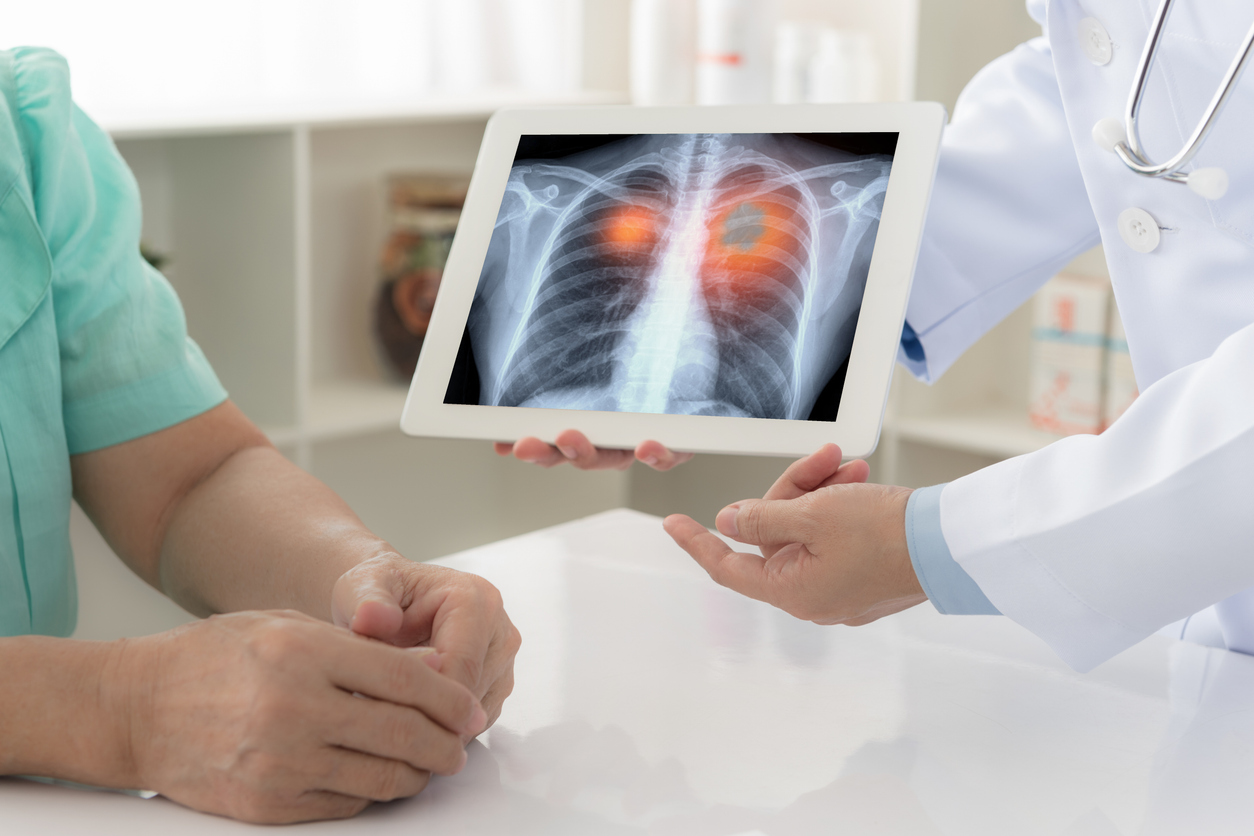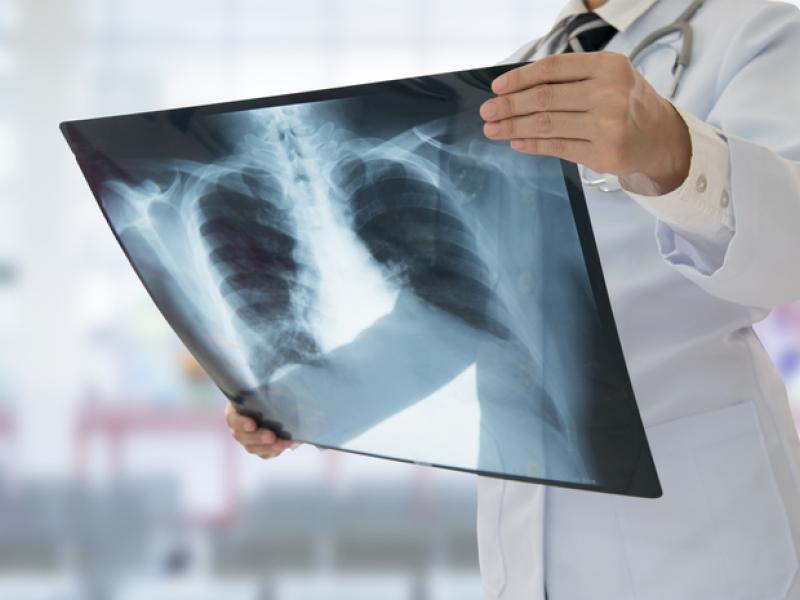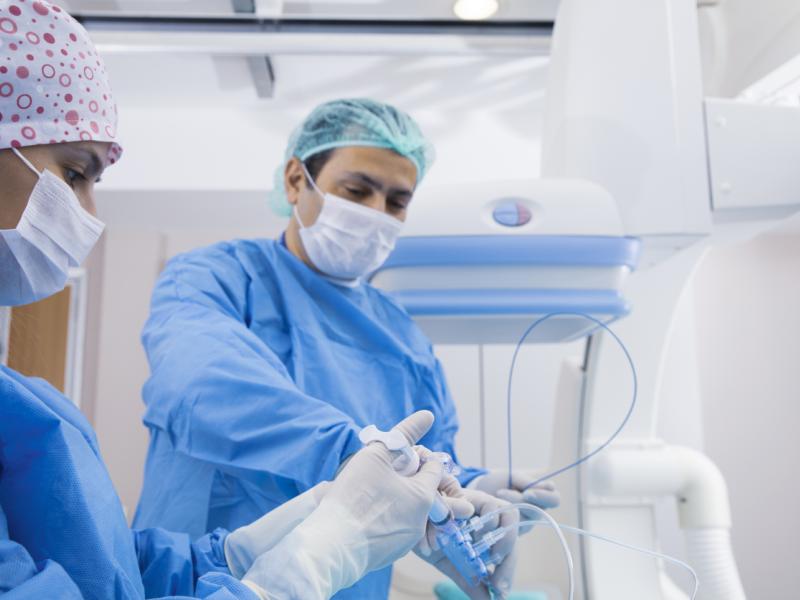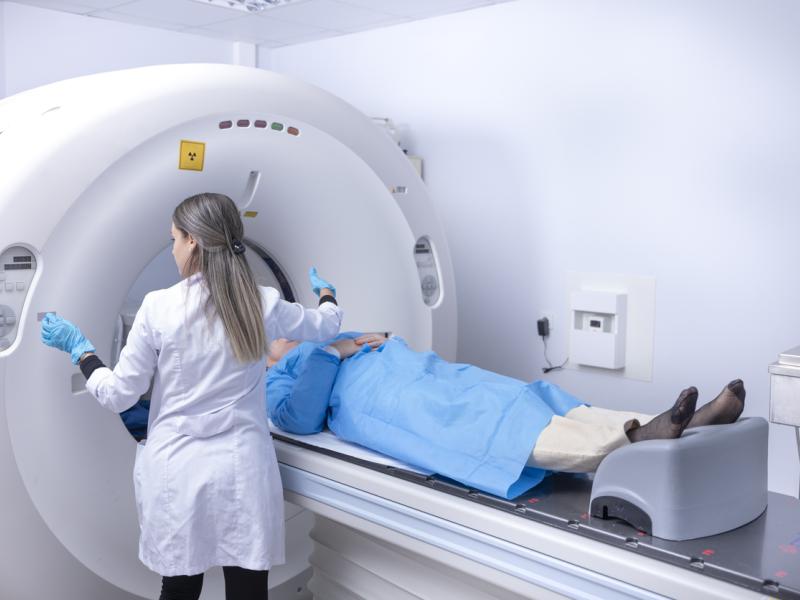Walking pneumonia is a mild but disruptive form of pneumonia with symptoms like a lingering cough...
Read More
Receiving a lung nodule diagnosis can be overwhelming, but you’re not alone. Inspira’s expert team provides advanced care to accurately assess and manage lung nodules, ensuring your respiratory health and offering personalized support for your well-being.
Lung nodules, also known as pulmonary nodules, are small, round or oval-shaped growths that can develop in the lungs. These nodules are typically detected incidentally during imaging tests such as chest X-rays, CT scans or PET scans, which are often performed for unrelated health concerns. Lung nodules can range from a few millimeters to several centimeters in size and may appear solitary or as a cluster. Lung nodules may point to underlying health issues, including infections, inflammation or lung cancer, but the vast majority are noncancerous.
In many cases, lung nodules do not cause noticeable symptoms, especially in their earlier stages. However, if symptoms do occur, they may include:
Lung nodules often get discovered during imaging tests such as chest X-rays or PET/CT scans performed for other reasons. Patients who meet certain criteria, such as age and smoking history, may be eligible for lung cancer screenings, which scan the lungs for lung nodules and other abnormalities. If a nodule is detected, your doctor may recommend further diagnostic tests or procedures like a biopsy to assess the nodule’s characteristics, determine its nature and any potential underlying causes and develop an appropriate management plan.


In cases where lung nodules are small and stable, observation and monitoring may be recommended. This approach involves regular follow-up appointments and imaging tests to track any changes in the size or appearance of the nodules over time.

For larger or concerning nodules, surgical removal may be necessary. This procedure, known as a lung nodule resection, involves removing the nodule and sometimes a portion of surrounding lung tissue. Surgical intervention is typically considered when the nodule has a higher risk of being cancerous or if it's causing symptoms.

In some cases, radiation therapy can target and shrink lung nodules. This noninvasive treatment option involves delivering high doses of radiation to the nodule while minimizing damage to surrounding healthy tissue. Radiation therapy may be recommended for patients who are not surgical candidates or as an additional treatment following surgery.
At Inspira, we understand the uncertainty and concern that can come with a lung nodule diagnosis. We take a comprehensive, personalized approach to care, tailored to each patient's needs and circumstances. From diagnosis and cutting-edge treatments to ongoing support and follow-up, our multidisciplinary team is here to guide you through every step of your journey with compassion.
Rest assured that if a lung nodule is cancerous, you’re in safe hands. Inspira boasts state-of-the-art facilities and skilled, seasoned oncologists specializing in lung cancer treatment. Throughout your journey, our multidisciplinary team will provide compassionate care, support and guidance, addressing all aspects of your well-being to ensure the best possible outcomes.
Lung nodules can be caused by various factors, including past infections, inflammation, exposure to environmental toxins like asbestos or radon and even certain medical conditions like tuberculosis or rheumatoid arthritis. In some cases, they may also result from cancer that has spread from other parts of the body. However, it's essential to remember that the majority of lung nodules are benign and not indicative of cancer.
If you have been diagnosed with lung nodules, it's essential to follow up with your doctor for further evaluation and guidance. Depending on the nodule size, appearance and characteristics, your provider may recommend additional imaging tests, biopsies or consultations with specialists to determine the best course of action. Early detection and proper management are key to ensuring the best possible outcomes.
In some cases, especially if the nodules are small and stable, lung nodules may resolve on their own over time without requiring any treatment. However, it's essential to undergo regular follow-up appointments and imaging tests to monitor the nodules for any changes. If there are concerns about the nature or growth of the nodules, further evaluation and intervention may be necessary.
Several factors influence the likelihood of a lung nodule being cancerous, including its size, appearance and medical history. Nodules that are larger, have irregular borders or grow rapidly are more likely to be cancerous and may require further evaluation and treatment. With timely, comprehensive care, the vast majority of lung nodules can be successfully managed, providing you with peace of mind and optimal health outcomes.

Walking pneumonia is a mild but disruptive form of pneumonia with symptoms like a lingering cough...
Read More
Long COVID refers to a range of persistent symptoms that can linger for weeks, months or years after...
Read More
Hurkle-durkle refers to the cozy, mindful act of unwinding before bed, focusing on relaxation and...
Read More
The material set forth in this site in no way seeks to diagnose or treat illness or to serve as a substitute for professional medical care. Please speak with your health care provider if you have a health concern or if you are considering adopting any exercise program or dietary guidelines. For permission to reprint any portion of this website or to be removed from a notification list, please contact us at (856) 537-6772